SAN ANGELO, TX — Willie Cantrell was headed towards San Angelo on May 2, 2020. Between Eden and Wall on US 87, the roadway seems as if it spreads out a little wider.
He was almost to San Angelo and he pressed the pedal just a little more.
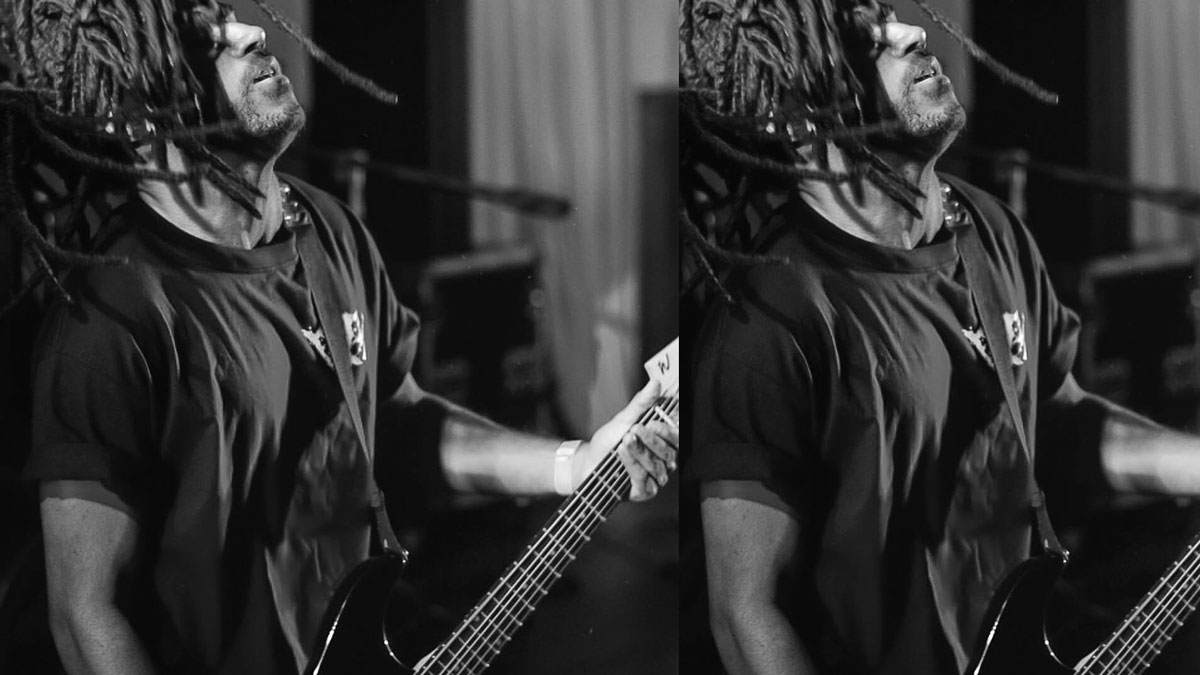
Willie Cantrell with his guitar
A Texas DPS Trooper was patrolling that patch of highway that day and Cantrell’s rented car with Virginia license plates went wizzing by. The trooper claimed he originally clocked Cantrell going 88 in a stretch of highway with a posted 75 mph speed limit. He pulled him over.
May 2020 was during the throws of the initial Covid-19 shutdowns. Bars and music venues had been closed, and protests against police raged across the nation. Cantrell, who had lost his job at the Texas Comptroller’s office months prior, was using the time off to hone in on his music. He twice graduated from Angelo State University, once with a BBA in Accounting and a second time with an MBA. Now he fronted a rock band, The Plantations, and he was headed to San Angelo to meet with friends and shoot a music video, he said during the trial.
The Plantations are best described as an alternative hard rock band. To the untrained ears, the sound is thrashing guitars with a synthesized voice singing angry lyrics one can not understand. But Cantrell was an accomplished musician and guitarist. A trumpeter in high school, he was also an accomplished athlete in basketball and track.
During the traffic stop, the trooper noticed a vape pen on the passenger side floorboard. A K9 unit was at the scene and alerted enough that the troopers had probable cause to conduct a search. Cantrell told the trooper the vape pen only contained CBD oil and he had the cartridge packaging to prove it. However, as Cantrell noted the tone of the traffic stop was turning into a criminal investigation, he clammed up and refused to answer more questions.
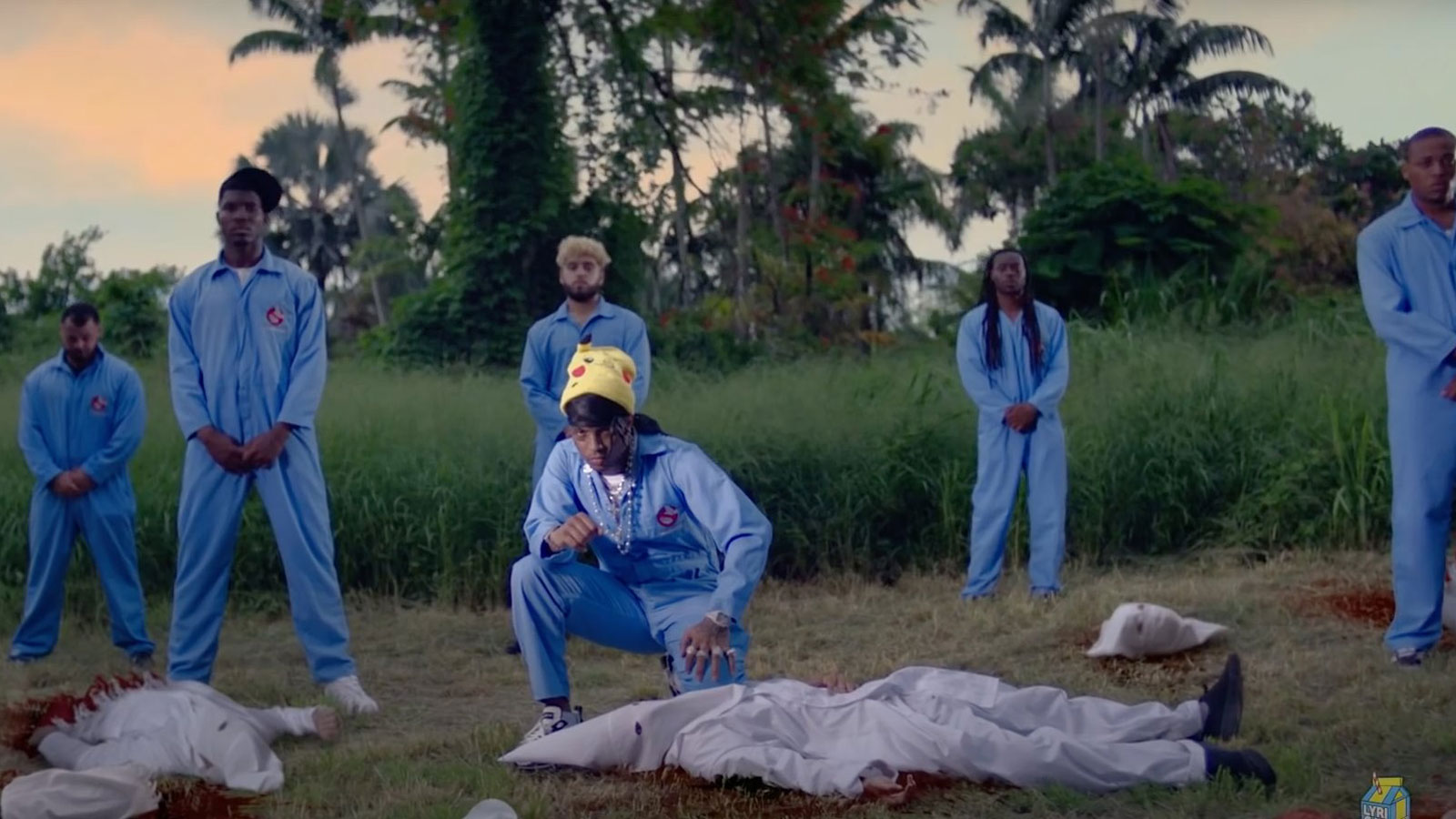
Promo shot for Cantrell's band The Plantations
Without Cantrell’s consent, but with probable cause, troopers continued the search. They discovered “a black bag containing 6 empty beer bottles with paper towels stuffed into the necks, a gas can, hammer and a yellow utility knife. A black hoody with a black t-shirt over it and one pair of black pants was found on the front passenger seat in a backpack. Two boxes of matches were found in a separate fanny pack style bag sitting on the front passenger seat as well,” according to the arrest report.
Cantrell was booked into the Tom Green County Detention Center for Unlawful Use of a Criminal Instrument, Possession of a Substance in Penalty Group 2 < 1 Gram, and Speeding at 10 Percent or More Above Posted Speed.
He posted a $7,500 bond and was out of jail the next day. That bond was revoked several weeks later as was a second bond. While he waited nearly two years of Covid delays of the court system that pushed back his trial date, he spent approximately a year-and-a-half behind bars.
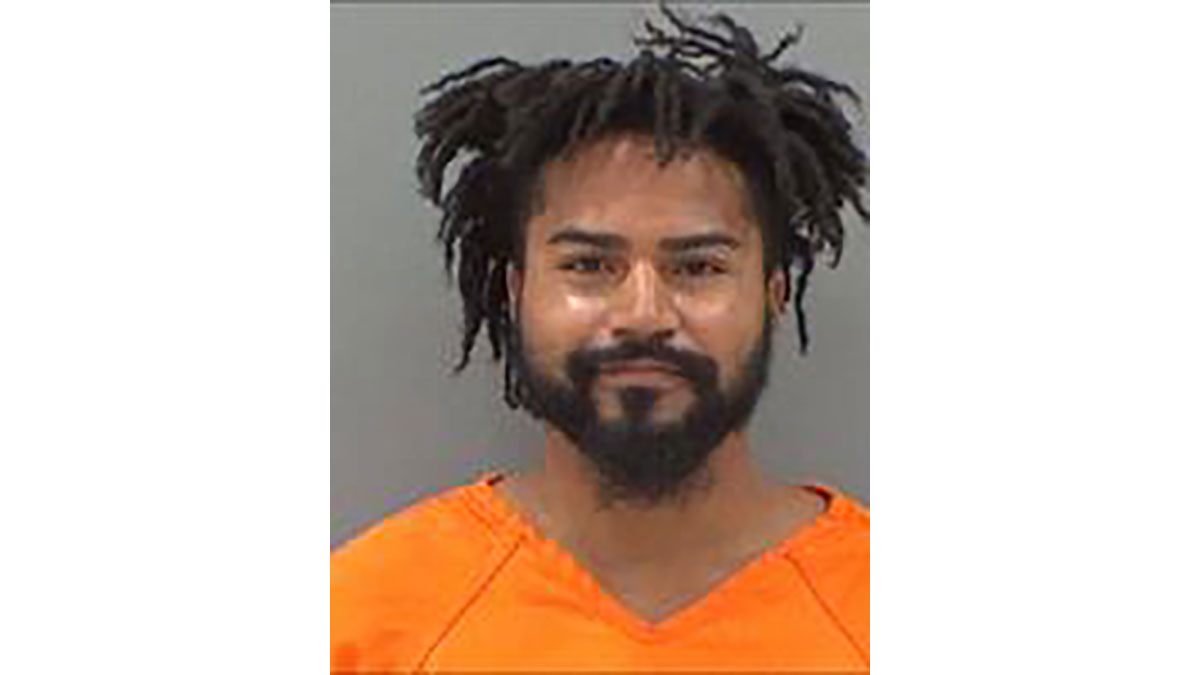
Willie Cantrell in the Tom Green County Detention Center. He was last booked on Dec. 31, 2021 and finally released on April 19, 2022 at 7:25 p.m. after acquittal.
On the stand, Cantrell explained that the bottles with the paper towels were props for a music video he intended to create. District Attorney Allison Palmer berated him about not having any other equipment other than a smartphone to film a music video.
Underlying the State’s reasoning for the indictment was Cantrell’s supposed strained relationship with his family. Cantrell was a foster child and his adoptive father, Jay Cantrell, was a convicted sex offender. A former principal and basketball coach at Paducah High School in the Panhandle of Texas, he was sentenced in 2015 to four 15-year prison sentences for three counts of indecency with a child and one count of sexual assault. He confessed in court to abusing the boys on his basketball team.
Growing up with an abuser where Cantrell’s own brother made an outcry to him concerning his adopted father’s sexual indecency could generate anger, one could suppose. Perhaps he was headed to the home of a family member to burn the house down in retaliation, so the prosecution seemed to hint. Hence, a trial over Unlawful Use of a Criminal Instrument — beer bottles with paper towels stuffed into the bottlenecks, an empty gas can, and some matches.
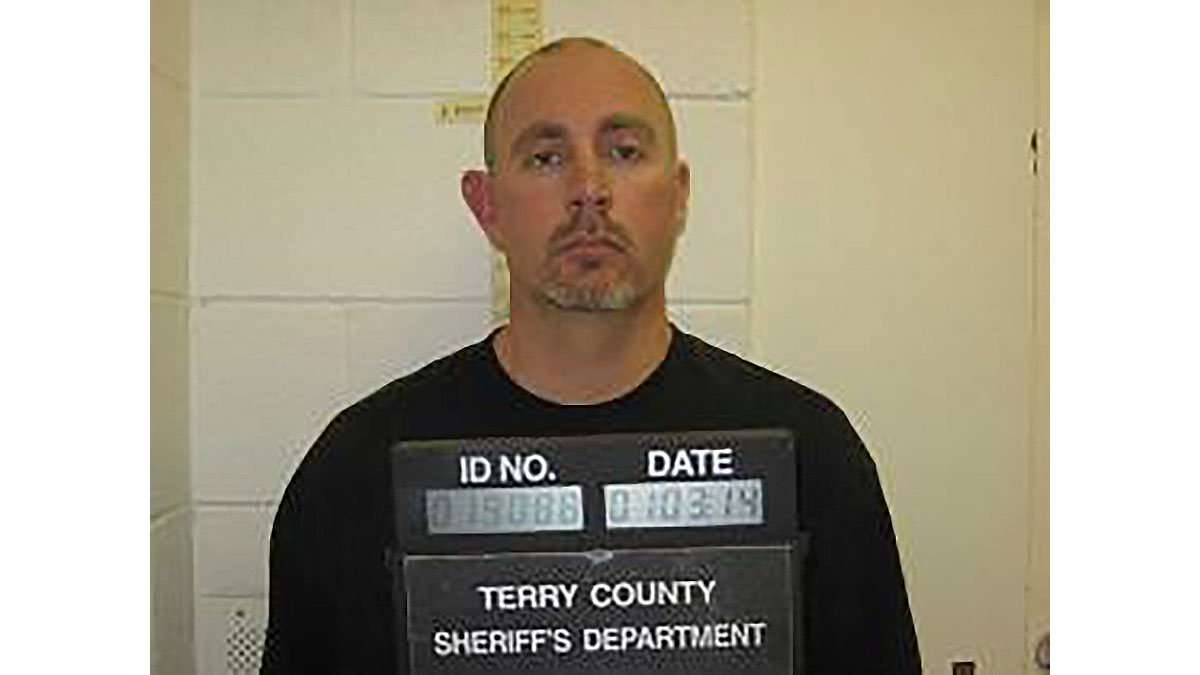
Willie Cantrell's adopted father Jay Cantrell is currently in prison
The prosecution downloaded the contents of Cantrell’s phone and out of thousands and thousands of pages of evidence from his phone, prosecutors could only find two texts made months prior that would indicate anger towards a family member. None of them threatened to burn anyone’s house down.

Willie Cantrell upon high school graduation
Prior to the trial, Palmer presented multiple pieces of evidence that should have exonerated Cantrell. One was a Brady Act disclosure that just days prior to the trial, on April 12, 2022, that, “an employee at Home Motors … advised that [Cantrell’s] rental car was released back to the defendant on May 4, 2020. The vehicle inventory provided by the Highway Patrol indicates that the Highway Patrol left the criminal instruments in the vehicle.”
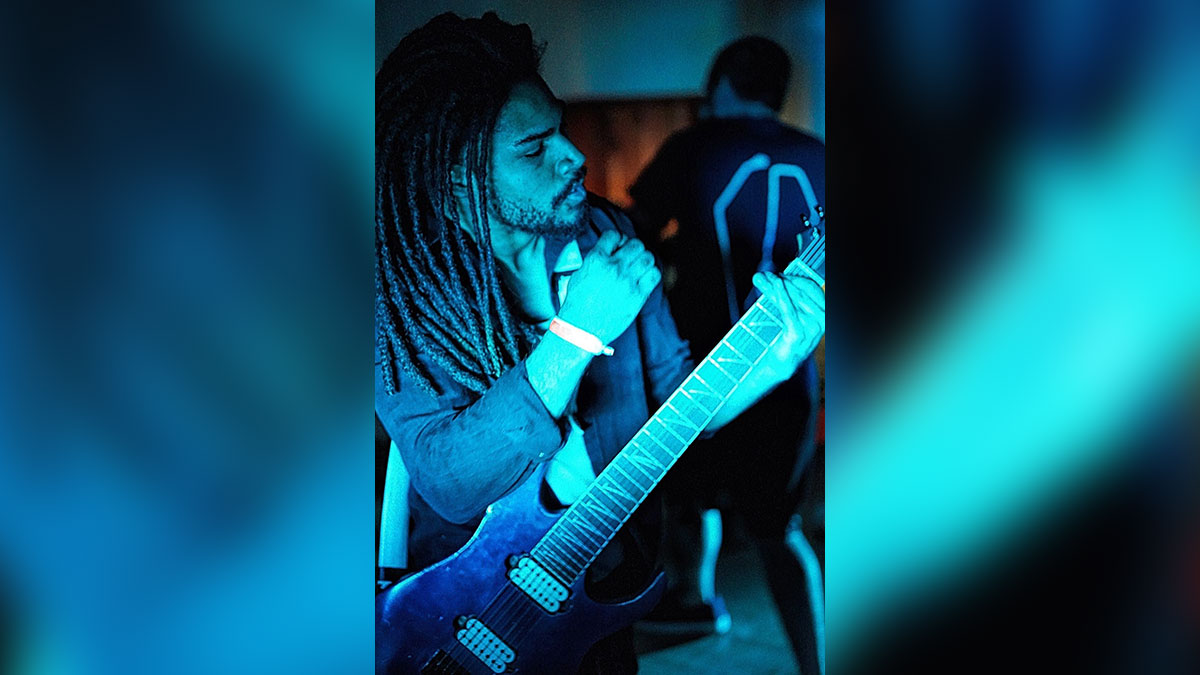
Willie Cantrell the guitarist
Two days following Cantrell’s arrest for possessing and presumably intending to use those paper towel-stuffed beer bottles, a gas can, and matches, the DPS failed to take the instruments of criminal intent away from the suspect! All the while, at least for a short while proceeding his arrest, Cantrell was free on bond. He had retrieved his car, and apparently, its harmful contents.
The Brady Act says the prosecutor has an affirmative duty to disclose material evidence favorable to the defense.
On that same day, the prosecution’s investigation led to another Brady Act disclosure. The DA investigator talked with Cantrell’s adopted uncle Jamie Cantrell. He told the investigator that, “they were very surprised by the defendant’s behavior and had not had any thought that he was out to get them. They informed [the] [I]nvestigator that they had both interacted with him at holidays and he was in good spirits.”
Two days later, DA investigators exchanged text messages with Cantrell’s mother, Lara.
“Lara Cantrell informed [the investigator] that prior to the instant offense she was unaware of any threats. Lara Cantrell informed [the] [I]nvestigator that the defendant was struggling emotionally and had pulled away emotionally, and that she would only hear from the defendant every few months. Lara Cantrell informed [the [I]nvestigator that the defendant had recently lost a well paying accounting job.” However, the report concludes, “Lara Cantrell informed Investigator Carnes that she does not fully understand what happened, what the threats were, or if the threats were credible.”
The narrative indicates that Lara Cantrell was, “not told a whole lot about the arrests or threats, other than that she needed to be aware,” the DA’s Brady disclosure states.
After the prosecution rested its case, defense attorney Emily Martinez made a motion for a directed verdict from the judge of not guilty. The motion was denied. Instead, she put the defendant on the stand. Willie Cantrell was poised and confident. Jurors interviewed after the trial said he was impressive and held up well to the prosecution’s attempts to evoke a negative emotional response.
By 3 p.m. April 19, the jury was in deliberation. It didn’t take long before the verdict was reached: Not guilty.
Cantrell still faces possible charges for possession of the alleged THC vape pen, even after spending 18 months in jail for something a jury determined he didn’t do. According to sources, almost two years later, the DPS has yet to lab test the vape pen. There is a three-year statute of limitations. We don’t know what became of the speeding ticket.
Emily Martinez, Cantrell’s defense attorney, took the case as a court-appointed attorney. She said after the trial that her strategy was to present all of the evidence and she believed the evidence would exonerate Cantrell. Martinez grew up in San Angelo and went to the University of Texas, graduating in 2016. She graduated from the Texas Tech Law School in 2019 and practices law in San Angelo with Jessica Skinner. This was her first criminal defense trial as the lead attorney.
Subscribe to the LIVE! Daily
Required






Comments
Listed By:
Seems a little overzealous actions by the prosecutor.....for a vape pen???
- Log in or register to post comments
PermalinkPost a comment to this article here: